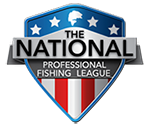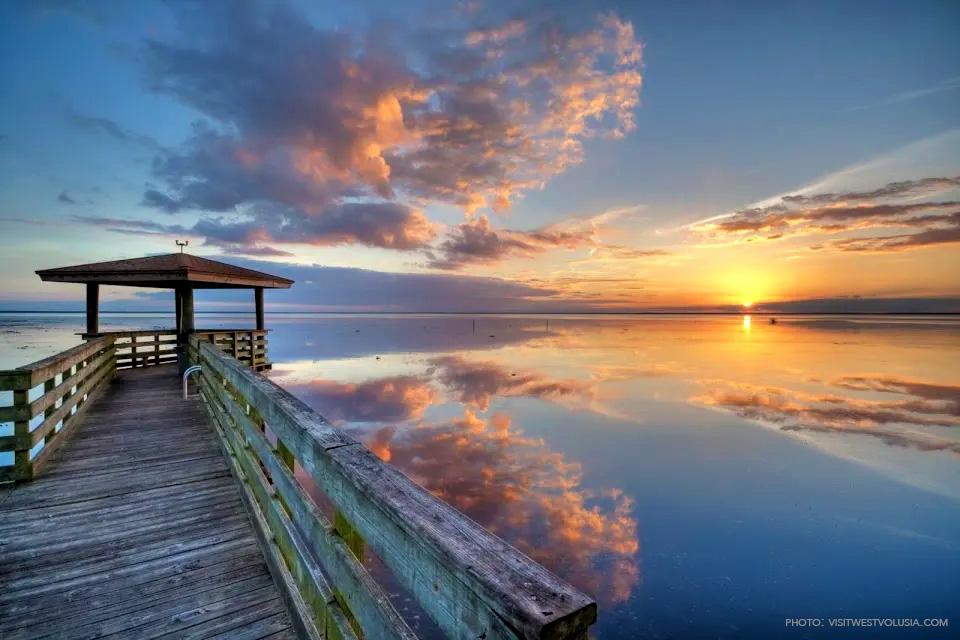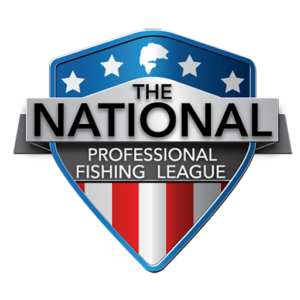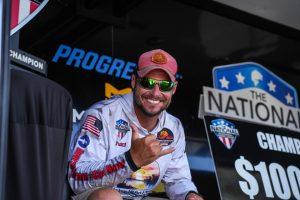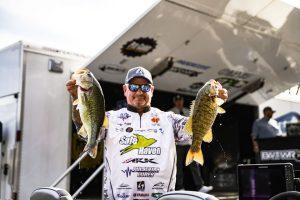Story by Justin Brouillard | Photo by VisitWestVolusia
For the third time, the National Professional Fishing League anglers and their families return to sunny Florida, and this time, the City of DeLand plays host as the anglers will compete on the famed St. Johns River The event kicks off on Thursday, September 26 and runs through Saturday, September 28, with launch at Ed Stone Park and Boat Ramp and weigh-ins at the Wayne G. Sanborn Activity Center.
In 2021, John Soukup wrapped up a stellar season with his second victory of the season on the Harris Chain, in the NPFL’s inaugural season, resulting in a fourth-place finish in Progressive Angler of the Year standings. In 2022, Taylor Watkins tackled the Kissimmee Chain of Lakes to earn the NPFL victory, his second of the season.
At around 310 miles in length, the St. Johns River is the largest in Florida, winding through twelve counties. It flows North, through several lakes, and from headwater to mouth, there is less than 30 feet of elevation change, making it flow at a very slow speed, oftentimes around 0.3 mph. Launching in DeLand, anglers will have to decide if they will turn North and run towards Palatka, or turn South and run towards Lake Monroe and DeBary, home of NPFL angler John Cox.
John Cox
Cox and longtime friend, Keith Carson, the 2021 NPFL Progressive Angler of the Year, have fished team tournaments on the St. Johns River for over 20 years. In fact, the duo has so much experience on the water that they have seen the ups and downs in the quality of fishing and changes to the fishery – both good and bad.
“The fishing now is not what it used to be five or ten years ago,” said Cox. “The overall numbers are not there and the grass is gone. The recovery programs are working, but this place used to be one of the top fisheries. We fished a lot of events where it was a struggle for the two of us to catch a limit, let alone one of us – it can be that tough.”
Cox is excited for a fall tournament on the river, and says with lots of recent and forecasted rains, the high water and current should have some fish positioned to be caught. However, if the water gets too high, and the fish get in the bushes, it can be tough.
“This place is very unpredictable, but I am excited for it,” Cox added. “It has been a while since I have been able to pull into an area and catch a limit – I will likely be hoping for five bites a day. Overall, it will be interesting to see where it will all go down and what the weather will do in the next week or so; I have lived here my entire life and do not even know where things might happen. I have been a part of many two-day events on this river and it is hard to catch fish in the same areas twice. Current is good, but too much water and it spreads the fish out too much – we will see!”
While impossible to cover the entirety of the river in three days, Cox’s history and knowledge are obviously an advantage. With Lake George around an hour or more, Palatka around two hours, and Monroe being an hour and a half, anglers will have their work cut throughout the official practice to identify areas they can settle into throughout the event.
“I could see myself practicing for three days and then going somewhere else during the event, having not spent any time there,” he added. “It would be a gamble with the long run times, but I might do it. For guys who have never been here, to make those long runs, you have to be committed.”
Cox listed several “things” that may happen, whether is shell bars playing, fish schooling on shrimp, or someone could be scoping them on Lake George. The possibilities are endless, and for guys who have never been here before, Cox warns that running around too much can burn you on the river.
“I’m curious to see if it’s going to end up with the top ten spread over 150 miles, or the top ten in one small area,” he added. “And who knows, if the water gets too high the river will become idle only, which will change everything. We would all be stuck, and having to idle for 3 hours would be wild; part of me would think it is cool if that goes down as it would make for an exciting event.”
Jason Meninger
Similar to John Cox, Florida resident Jason Meninger knows the St. Johns River and also has partaken in several of the tropical storms dumping rain in the region this year. In addition, Meninger notes that in between those storms, it still rained. And in between that, there were rain showers.
“It was like weeks without seeing the sun,” said Meninger. “The sheer amount of rain will change things, and we are currently around 6 inches away from being in a ‘major flood stage’ around here. That may affect things in DeLand, where the event is launching, and if that is the case, we may be looking at lots of no-wake sections of the river.”
Similar to Cox, Meninger plans on sampling as much of the river as possible throughout practice and plans on making a decision then on how his tournament day one will look like. Despite the high water spreading the fish out, sometimes making them uncatchable, it also opens the door to others.
“I have seen it really high before but I have not much experience under those conditions fishing-wise,” he added. “The no wake thing will be a wildcard, and will greatly affect how this event goes. With that said, I am planning on spreading out. I’ll probably spend a day looking from Jacksonville to Monroe, which has a lot of water to cover. I have never fished below Dexter, but I will probably fish down there. And finally, a day near my fish camp – really sample everything.
While running all over the river is not really an option during the event, some anglers will try it. For Meninger, and his plan to junk fish every day, he will rely on history to fill in the gaps along the way.
“I have fished here enough where I know which sections and tides are good, and I can stop on the way back and make a few casts, and maybe catch a few bass,” he added. “Closer the Jacksonville, the tides become more important, but the biggest thing is figuring out the right areas. When the water is high like this, even on a low tide, things will still have water, and even more on high tide – that is a little different, too.”
When asked his prediction on where he thinks it will go down, and what the weights may look like, his answer was simple.
“We will certainly see,” he laughed. “Without knowing where and what the water looks like everywhere, it is hard to make that prediction. But, if you can be consistent here, it goes a long way. Likewise, someone will bust a big bag one day and hang in there with tougher, below-average days. That is just how Florida is.”
How to Watch
Tune in daily from September 26 through 28 to watch the action from the St. Johns River. Follow along and watch the daily LIVE Leaderboard, LIVE Blog, and on-the-water photo galleries and blogs of the anglers from the Sunshine State.
Under the Go Live Tab, choose LIVE Broadcast or check out the real-time leaderboard on the Weigh Live Tracker with estimated weights entered by the anglers on the water and join us for the LIVE Weigh-ins, here!
And be sure to follow us on Instagram, Facebook, YouTube, & Twitter.
NPFL Stop #5 on the St. John’s River is hosted by the City of DeLand, Florida.
